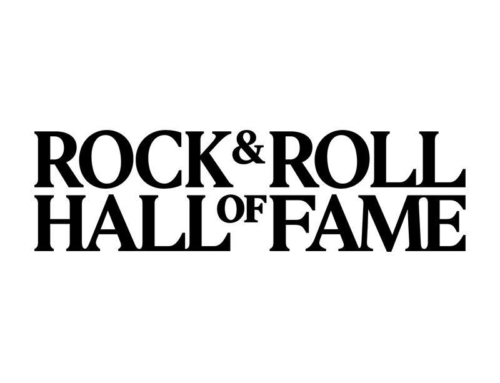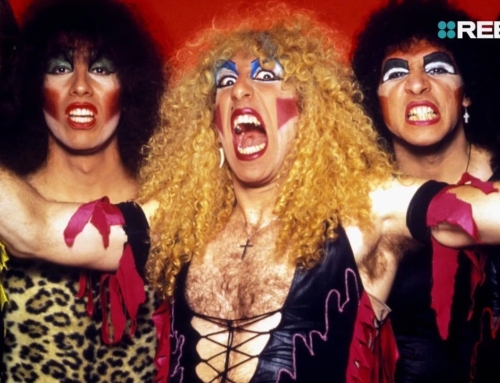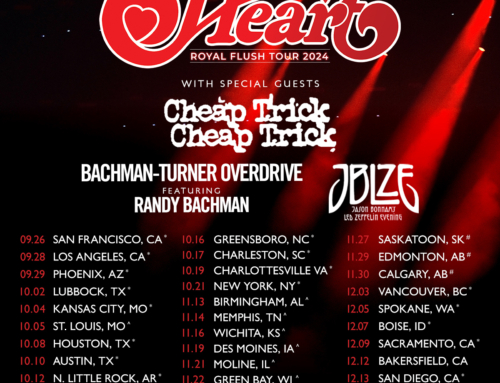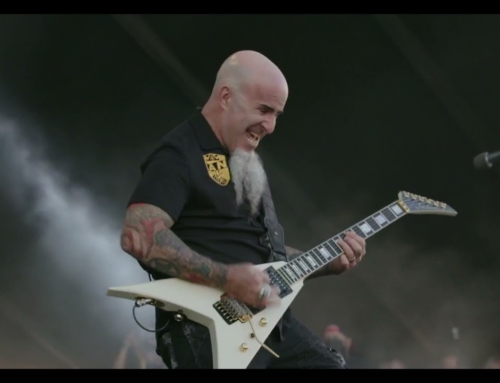DEF LEPPARD drummer Rick Allen, who has been expressing himself in recent years through his art, recently spoke to Joe Rock about one of the main themes of his artwork, which is actually his right arm. The 58-year-old musician famously lost his left arm to amputation after a near-fatal auto accident in England in 1984.
“Not too many people know this, but I broke my right arm really badly [in the 1984 accident], and during the healing process, the hospital, they said, ‘There’s a chance that you may lose your right arm as well,'” Rick recalled (as transcribed by BLABBERMOUTH.NET). “So when I was able to get through that horrible period in time and get all the infection out of there and then actually fix the bone and the arm, you can imagine I was so grateful. And I think that’s something that speaks to that. The handprint is really, for me, a sign of gratitude, that I can still do what I do. And I put my hand through a lot — from drumming to the artwork and, obviously, everything that I do. So it’s pretty symbolic. It’s the only one I’ve got, but I’m really blessed to have it. [Laughs]”
Allen lost his arm after he was thrown through the sunroof of his car, and his left arm got caught in the seatbelt when it came undone during the crash. As a result, the arm was severed from his body. Initially, doctors reattached the arm but they would eventually have to amputate because of an infection.
After Rick‘s life-altering accident, he had to relearn how to play drums and drum manufacturer Simmons worked with him to build a kit. His DEF LEPPARD bandmates stuck with Allen through the difficult time and the drummer persevered through an accident that would have ended most people’s careers.
Allen spoke about his accident during an interview with Modern Drummer. He said: “I remember coming around in the hospital and then realizing what had happened to me after the accident, and honestly, I wanted to disappear. I didn’t wanna do this anymore. And then I started getting these letters from all over the world… I got encouragement from everywhere — from my family, from the guys [in the band], from people all over the world. And I don’t know what happened, but I discovered the power of the human spirit and just said, ‘You know what? I can do this.’ It was really a collective thing. It was all this encouragement I was getting from other people, and then it just manifested in wanting to succeed. And that’s exactly where it came from.”
Rick also talked about the support he received from his bandmates in DEF LEPPARD who stuck by him through his recovery and waited patiently for his return.
“They left the decision to me, whether I wanted to go on or not, and they gave me time to grow and develop, really, a whole new style [of playing],” Allen said. “And that’s all I needed — I just needed the time. I needed the time to build my confidence and realize that I could do it. Nobody ever said, ‘Well, you have to make a decision now.’ I think that was the most important thing — just that time that they gave me just to find myself.”
After visiting the Walter Reed Army Medical Center in 2006, Allen dedicated himself to helping war veterans who suffer from Post Traumatic Stress Disorder (PTSD) as a result of sustaining injuries similar to his own.
Allen told ABC News in 2012: “I didn’t know what my life would be like after that terrible day. It was the darkest time in my life… My desire is to encourage a support system for warriors, de-stigmatize PTSD, share their stories and offers alternative ways to pave the road to resiliency and health.”







